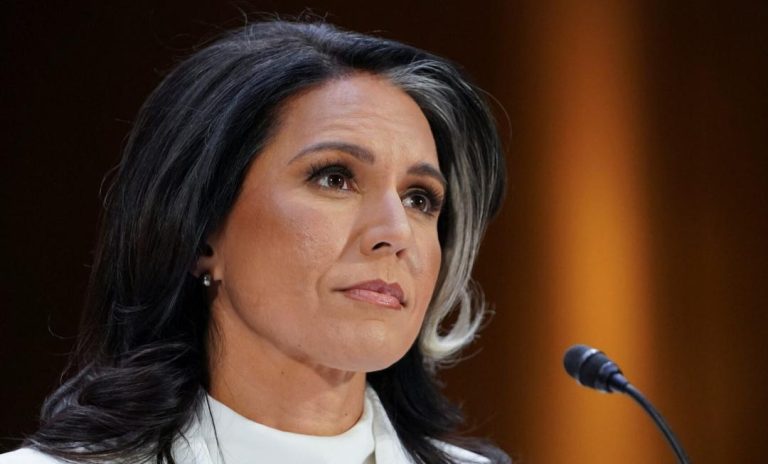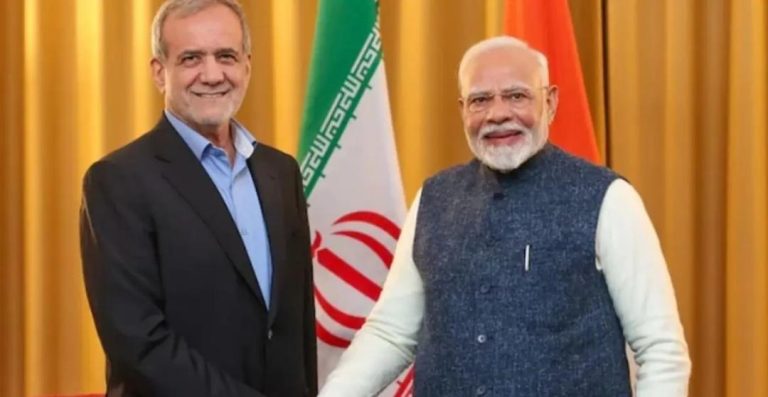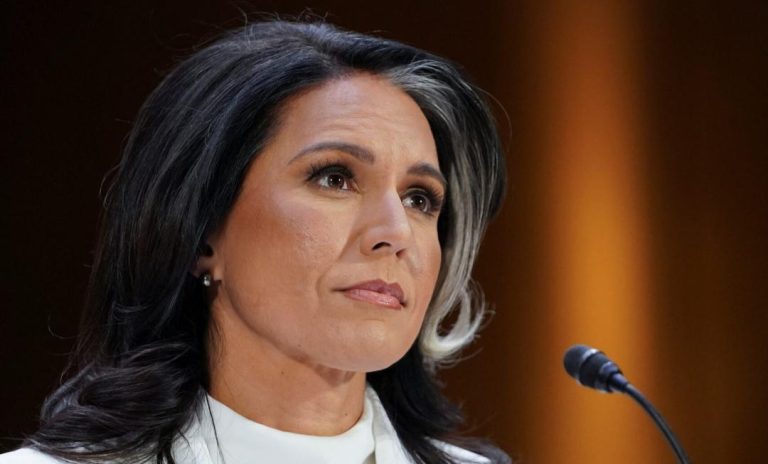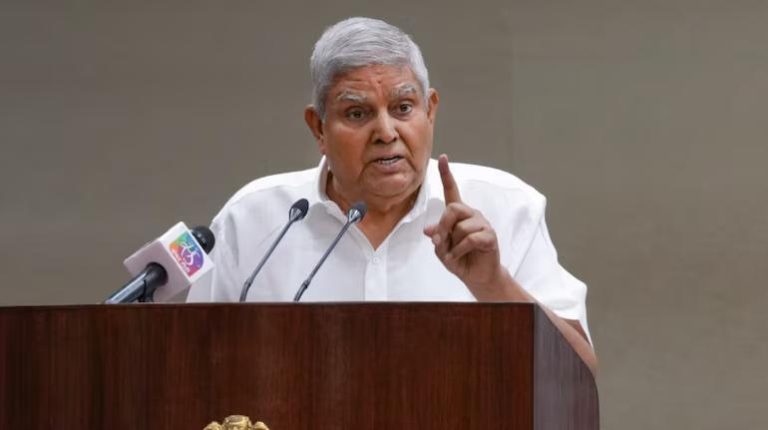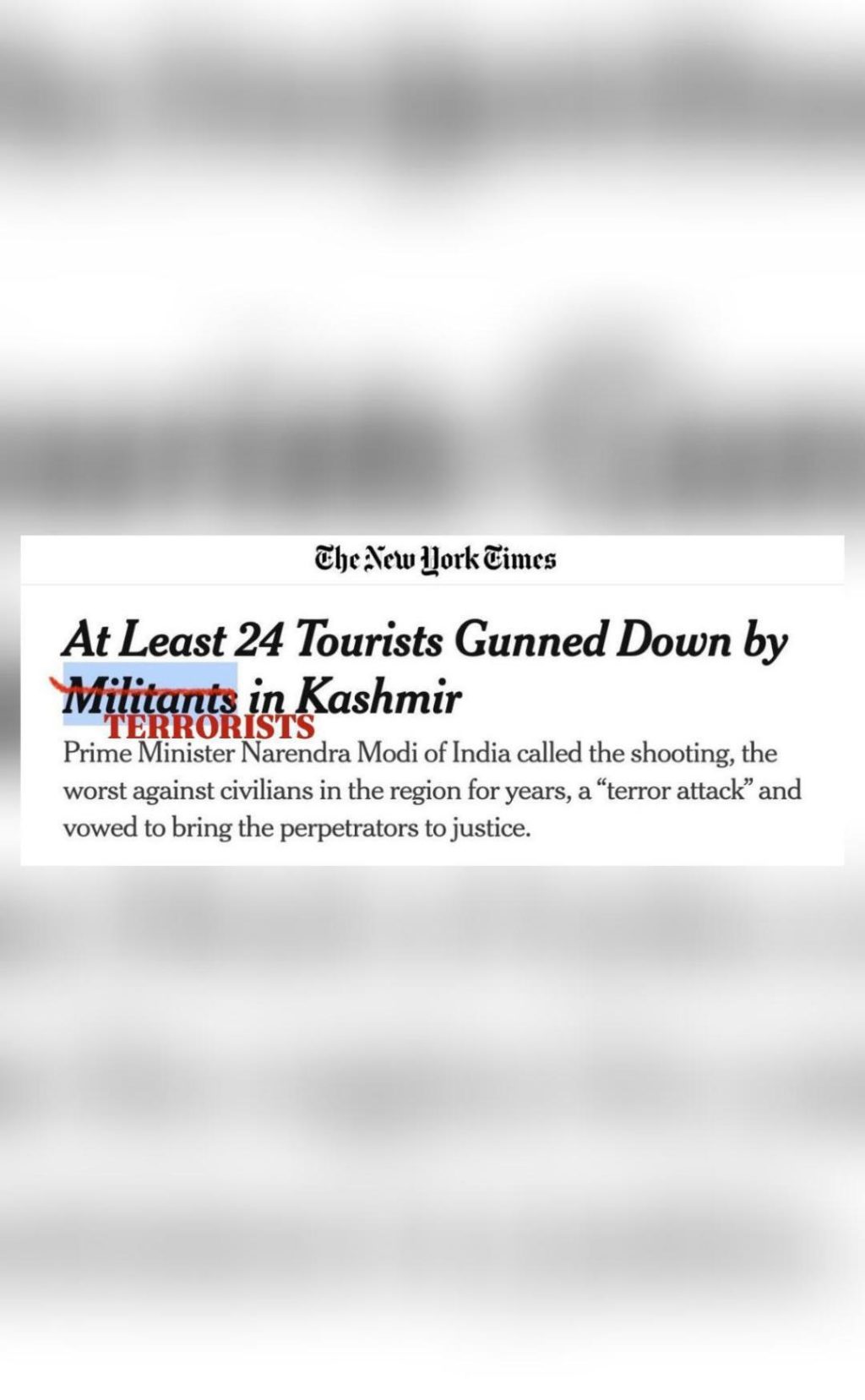
Hey NYT, fixed it for you: US committee after news portal calls J&K terrorists ‘militants’
The ongoing debate over the terminology used to describe terrorist attacks has taken a new turn, with the US House Committee on Foreign Affairs calling out the New York Times (NYT) for using the term “militants” to describe the perpetrators of a recent attack in Jammu and Kashmir (J&K). The committee took to Twitter to express its displeasure, sharing a screenshot of the NYT article and remarking, “Hey NYT, we fixed it for you…This was a TERRORIST ATTACK plain and simple…Whether it’s India or Israel, when it comes to TERRORISM, NYT is removed from reality.”
The article in question, published by the NYT on October 11, reported on an attack that occurred in Pahalgam, a popular tourist destination in J&K, in which several people were injured and one person was killed. The attackers, who were identified as terrorists affiliated with the Pakistan-based Jaish-e-Mohammed (JeM) group, targeted a bus carrying Hindu pilgrims.
The US House Committee on Foreign Affairs’ tweet sparked a heated debate on social media, with many people expressing their support for the committee’s stance and calling out the NYT for its perceived bias. Some users pointed out that the use of the term “militants” to describe terrorist attacks is a common phenomenon in the media and that it can be seen as downplaying the severity of the attack.
However, others argued that the term “militants” is often used to describe groups that are fighting against an occupying power or an oppressive government, and that it is important to recognize the political context in which these groups operate.
The debate over the use of the term “militants” to describe terrorist attacks is not new. In recent years, there has been a growing trend towards using more neutral language to describe these groups, with many media outlets and governments opting for terms such as “armed fighters” or “insurgents” instead of “terrorists”.
However, the US House Committee on Foreign Affairs’ tweet suggests that the debate is far from over. The committee’s chairman, Representative Michael McCaul, has been a vocal critic of the NYT’s reporting on J&K, and has accused the newspaper of being biased against India.
In a statement, McCaul said, “The New York Times continues to demonstrate its lack of understanding of the geopolitical reality of Jammu and Kashmir. By referring to terrorists as ‘militants’, the NYT is perpetuating a false narrative that ignores the brutal violence and oppression perpetrated by terrorist groups in the region.”
The NYT responded to the committee’s tweet, saying that it stood by its reporting and that the term “militants” was used to describe the attackers because it was a more accurate and neutral term than “terrorists”.
However, the debate over the use of the term “militants” to describe terrorist attacks is not limited to the NYT. Many media outlets and governments around the world have been criticized for using similar language, and there is growing recognition of the need for more nuanced and accurate reporting on these issues.
In recent years, there have been several high-profile examples of media outlets using the term “militants” to describe terrorist attacks. In 2015, the BBC was criticized for using the term “militants” to describe the perpetrators of a terrorist attack in Paris, with many people arguing that the term was too soft and failed to convey the severity of the attack.
Similarly, in 2016, the Guardian was criticized for using the term “militants” to describe the perpetrators of a terrorist attack in Orlando, with many people arguing that the term was too vague and failed to convey the severity of the attack.
The debate over the use of the term “militants” to describe terrorist attacks is complex and multifaceted, and there is no easy solution. However, it is clear that the use of this term can have significant consequences, and that it is important for media outlets and governments to use accurate and nuanced language when reporting on these issues.
In conclusion, the US House Committee on Foreign Affairs’ tweet highlights the ongoing debate over the use of the term “militants” to describe terrorist attacks. While some people argue that the term is a more accurate and neutral term than “terrorists”, others argue that it is too soft and fails to convey the severity of the attack. Regardless of the outcome, it is clear that the debate over the use of this term is far from over, and that it is important for media outlets and governments to use accurate and nuanced language when reporting on these issues.
Source: https://x.com/HouseForeignGOP/status/1914843415793095043
